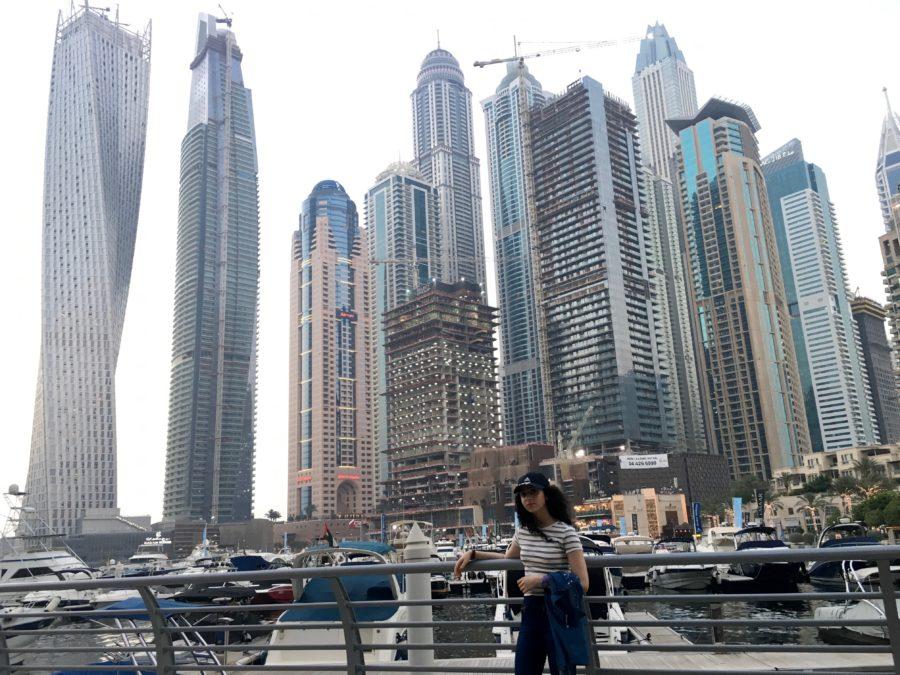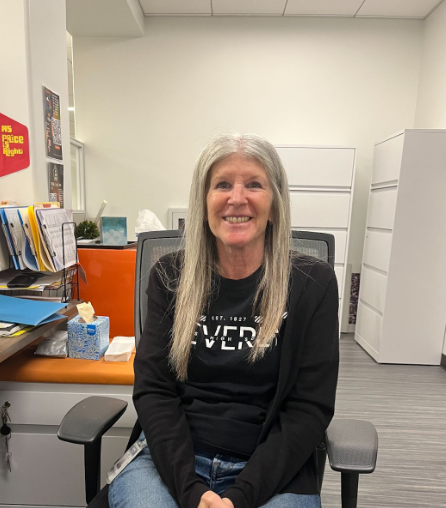Kate Kotlyar staff writer
Los Angeles is known as a cultural melting pot and one of the most diverse cities across the U.S. Also, the population of Beverly is not all from one place; people from all over the world congregate here.
For example, people from places such as Brazil, Russia and Ecuador all attend Beverly. Ecuadorian senior Ana Solis immigrated to the U.S. on Oct. 1, 2019.
“I was very excited about [moving,] but obviously I was scared because I had to say goodbye to a lot of things. At the same time, it was really cool to know that I’m going to discover new people and new culture, but it was still very scary for me. It is still scary some days [because] you’re just going to be with new people, a new language and something you’ve never experienced before,” Solis said.
Persian junior Aghigh Banitaba had a similar experience with her transition to America.
“I would say the transition had different stages. The first stage was the exciting part of coming to a new country, and adjusting to everything. The second part was when I actually started school, and had to figure out how I was going to navigate not being fluent in English, not knowing how to communicate with other people, not being comfortable, being different. I had to figure that out during my first year here,” Banitaba said.
In comparison, Russian junior Ivan Reylyanu was not excited for his new life in the U.S.
“At first I wasn’t really for it. I was like, ‘I don’t want to go there.’ I didn’t want to be made fun of, and I didn’t know any English, and I was like, ‘Well, what am I supposed to do?’ It wasn’t very pleasant. I got through it eventually,” Reylyanu said.
Seven out of the eight interviewees moved here because their parents had good job opportunities. For example, Georgian junior Sally Beridze’s parents continued their business, Mondo Coffee Shop, here. Similarly, Turkish sophomore Sima Arslan moved here because her aunt gave her father a job at her cafe, Cafe Istanbul.
Solis and her family decided to immigrate to the U.S. after receiving a visa through a lottery system.
“There is this thing called the visa lottery. So my mom, my dad and my brother applied for it, and my mom randomly won it. We were really happy about it. So, after a year of doing the process and filling out all the papers we got here,” Solis said.
Brazilian junior Ana Morais “feels much safer here than Brazil.” Arslan agrees that the best thing about living in the US is her “safety.”
“Here, I tell my mom that I’m gonna go out to Santa Monica or Beverly Drive or whatever with some friends, and she wouldn’t be worried. I wouldn’t be worried and I would just have fun and come back home. But in Saudi Arabia [where I was born], people didn’t go out,” Arslan said.
Banitaba is an advocate for change, as shown through her participation and leadership with the organization GENup and Beverly club Urge to End. She believes that the “best thing” about the U.S. is “freedom of speech and expression.”
“The idea that school encourages you to find your voice and supports you in your journey of advocacy, I think that’s really important. I had lived in Iran, a place where people even try to avoid the [word] advocacy and talking about political issues or social problems because you can actually get in trouble. There was a human rights activist who was in prison for about five years for just advocating. So, I would say the best thing is being able to develop your opinions and express them freely,” Banitaba said.
Reylyanu is “certain” that the “stability of the dollar” is the best thing.
“A lot of people complain about that but, I mean, at least you can buy stuff. One hundred rubles in 2010 compared to 100 rubles now is like two different things,” Reylyanu said.
Despite the safety, stability and first amendment rights, British junior Ella Cox, Chinese junior Tina Yang, Morais and Beridze all miss their families.
“I’m so far from my country and I miss my [distant] relatives a lot because they didn’t come here with me,” Beridze said.
Both Banitaba and Arslan are Muslim, and have either been “laughed” at or “left” becuase of their religion.
“Once, in summer school between fourth and third grade, I made this friend and I don’t know how, but the topic of religion came up. And when I at the time mentioned that I was a Muslim, she automatically just dropped her expression of happiness and she got really just weirded out, and then she never spoke to me again. She just left. We were really good friends for like the first three weeks of our [summer] school so it was surprising,” Arslan said. “I wasn’t hurt, but it was just shocking. A lot of people here have a wrong idea of what being a Muslim means, so that kind of helps [enhance] the [feeling of] alienation.”
Despite Yang immigrating to America when she was only 2-years-old, she still feels a “cultural disconnect” from both her Chinese and American worlds.
“[I feel] isolated and distant…If I’m in China, I’m always going to be American. If I’m in America, I’m always going to be Chinese. Not even [to] people around me, but just to myself. I feel like there’s a very clear difference. If I’m in China, I feel foreign. But if I’m in America, I feel like ‘Oh, I’m Chinese’ in spite of everything,” Yang said.
Categories:
Immigrant population of Beverly shares experiences
November 12, 2020
Junior Aghigh Banitaba in Marina Walk, Dubai, where she also lived for a few years. Photo courtesy of Aghigh Banitaba.
0
Donate to Highlights
$125
$1000
Contributed
Our Goal
Your donation will support the student journalists of Beverly Hills High School. Your contribution will allow us to purchase equipment and cover our annual website hosting costs.
More to Discover





























